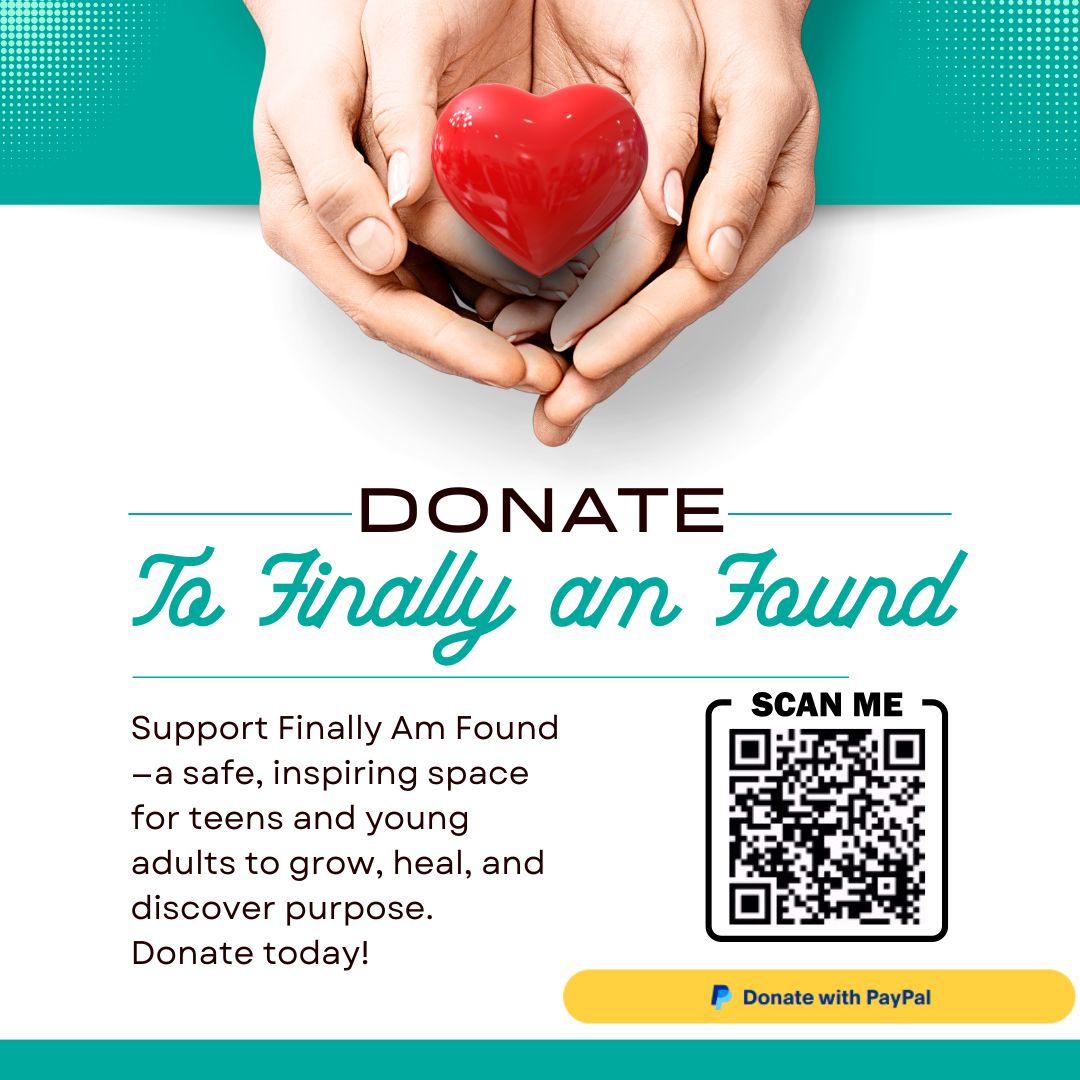Navigating the teenage or young adult years can be quite challenging. With the demands of school, friendships, relationships, and career aspirations, it’s common to become overwhelmed and neglect self-care. Self-care is crucial during this time; it’s not merely an act of selfishness but rather an essential investment in your overall well-being. This practice enables you to better support yourself and those around you. From a Christian perspective, our bodies are considered temples/houses of the Holy Spirit, which underscores the importance of caring for our spirit, soul, mind, and body. Prioritizing self-care can significantly enhance both personal health and spiritual fulfillment.
What is Self-Care?
Just like a flower needing water & sunlight to bloom, we too need self-care to flourish. Self-care is the sunlight for our soul & a greenhouse for our inner beauty to blossom. In our busy lives, it’s easy to forget to take care of ourselves in all our facets. As humans, we often prioritize the needs of others over our own well-being, drowning in a sea of responsibilities and obligations. Yet, just as a flower cannot survive without its essential elements, we too require nurturing and attention. Self-care is not a luxury; it is a necessity, a gentle reminder that we deserve to flourish and thrive.
Embracing Self-Care as a Lifestyle
Let us embrace self-care not just as an occasional practice but as part of our lifestyle, a daily ceremony of love and compassion towards ourselves.
Activities that Replenish
Self-care is any activity that helps you relax, recharge, rejuvenate, and replenish your physical, spiritual, mental, and emotional health. It encompasses all the little rituals that recharge your spirits and refresh your soul. It can be as simple as a moment of reflection, taking a walk in nature, taking a long bath, singing a favorite love song to yourself in the mirror, fasting, or as complex as seeking professional help. The key is to find healthy activities that work for you and make you feel exceptionally good.
Reconnecting with Yourself
Each act of self-care is akin to watering the roots of your being, nourishing our physical, emotional, spiritual, and mental health, helping us stand tall and resilient against life’s storms. Moreover, self-care allows us to reconnect with our inner self, listen to our heart, and pay heed to our emotions. It’s in this sacred space that you can find clarity, discover your passions, and cultivate a deep sense of gratitude for your journey.
Filling Your Cup to Serve Others
When you take time to care for yourselves, you not only fill your own cup but also become more present and loving, able to fill other people’s cups out of your overflowing abundance. For instance, taking a few minutes/hour/day for meditation or deep breathing exercises when you’re stressed. This practice centers you, so when you interact with your family or colleagues, you’re calm and patient, rather than reactive and overwhelmed.
Even small acts like enjoying a hobby or reading a book can refill your cup. When you feel fulfilled, you naturally bring more positivity and enthusiasm to your interactions, lifting others up with your abundant energy. It’s a cycle of well-being that benefits everyone around you.
Benefits of Self-Care
- Better Focus in Life: Because you are able to declutter your thoughts, priorities, and emotions. When you take the time to nurture yourself, you create space for clarity and creativity to flourish. It’s like clearing out a crowded room; suddenly, you can think, breathe, and see things more clearly.
- Learning About Yourself: By diving deep into the layers that make you who you are. Self-care activities like journaling, therapy, and self-reflection can help you develop a better understanding of yourself, your values, and your goals. It’s in those quiet moments of reflection, amidst the chaos of everyday life, that you uncover the whispers of your heart. The simple act of pausing grants you clarity, revealing passions long buried under routines and obligations.
- Stress and Anxiety Reduction: Engaging in self-care activities plays a vital role in the management of stress and anxiety. Allocating time for personal well-being enables you to cope with stressors more effectively, reducing the risk of chronic stress, which can have debilitating effects on overall health.
- Improved Mood: Engaging in self-care activities can improve your mood and overall happiness. These activities can release endorphins, also known as “feel-good” hormones, which can improve your mood and overall sense of well-being.
- Increased Productivity: When you’re well-rested and relaxed, you’re more likely to be productive and focused.
- Enhanced Relationships: Self-care can help you build and maintain healthy relationships with others.
- Boosted Confidence: Self-care can significantly boost confidence by improving self-esteem, reducing self-doubt, and developing a more positive body image. It helps you gain a better understanding of yourself and build resilience to challenges.
- Mastering Body Awareness: You learn to listen to the whispers of your body—the fatigue that calls for rest, the cravings that seek nourishment, and the emotions that beckon for expression. This practice transforms mere existence into a conscious journey, empowering you to take charge of your health.
- Spiritual Benefits: You are able to discern the voice or light of the Holy Spirit. You will find it easier to trust in the nudges of the Holy Spirit. The clarity that follows will illuminate your path, revealing truths that may have previously been shrouded in doubt.
Loving Yourself
The journey to self-care begins with the profound act of loving oneself. Yet, many of us struggle to offer ourselves unconditional love. You often find it challenging to forgive your bad days or acknowledge your imperfections. Too often, you place unrealistic expectations on yourself, believing that your worth is tied to external factors.
Shifting from Conditional to Unconditional Love
You might think, “I will only love myself if I achieve the ideal body, if society deems me attractive, or if I secure that coveted job.” Thoughts like, “I will feel worthy once I own that perfect house or travel to my dream destination” linger in our minds, as do the hopes that our lives will finally fall into place when we reach certain milestones, such as graduation or financial success. This conditional love leads us down a path where happiness is perpetually just out of reach. It’s time to shift this narrative and start appreciating ourselves just as we are, regardless of our achievements or appearances. The rest will follow.
Embracing Your Worth
Embracing your own worth allows you to cultivate a nurturing relationship with yourself. It encourages you to prioritize your own needs, providing the energy and motivation to care for others. When you acknowledge your unique qualities and embrace your imperfections, you create a space for growth and healing. This self-love radiates outward, influencing how you interact with the world and those around you. Let go of guilt, let those old, heavy chains fall away, and embrace the lightness that comes with prioritizing yourself.
Forgiveness and Moving Forward
Forgive yourself because you are already forgiven. “For I will forgive their wickedness and will remember their sins no more.” – Hebrews 8:12. “Forgetting what is behind and straining toward what is ahead, I press on toward the goal to win the prize for which God has called me heavenward in Christ Jesus.” – Philippians 3:13-15.
Some days will be harder than others, and that’s perfectly okay. What matters is your commitment to this journey, your willingness to explore the depths of your heart, and your determination to rise each time you fall. As you cultivate this love within, you’ll find that your capacity to give and receive love expands. You’ll form deeper connections, foster healthier relationships, and create a life that resonates with authenticity and purpose. So, take a moment each day to look in the mirror and remind yourself of your worth—because truly loving yourself is the greatest gift you can give to yourself and to the world around you.
Spiritual Self-Care
As a Christian, how do you take care of your spirit and replenish it? It can be difficult to separate yourself because you are a unified being. However, when you take good care of your spirit, your other facets—soul (emotions), mind, and body—tend to align as well. This inner care allows you to discern the kind of spirit you possess; some may be benevolent and helpful, while others can be malevolent and harmful. Just as Jesus asked Peter, “What kind of spirit are you?” it is essential to reflect on this question for your spiritual well-being, also remembering that we are never permanently here in the world, our spirits will transcend while our physical bodies eventually decompose.
Spiritual Fasting
This practice entails deliberately abstaining from food, drink, or various activities for a designated period with the intention of nurturing one’s spiritual growth. It is a time of quiet reflection, where the distractions of the world fade away, allowing you to connect more deeply with your inner self. Through fasting, one can cultivate self-discipline and heightened awareness, becoming more receptive to the divine presence, will, and guidance of God. This sacred journey invites a profound understanding of the power that lies within, fostering a sense of clarity and purpose.
Silent Retreats
Silent retreats provide an opportunity to withdraw from the noise and distractions of daily life to spend time in quiet reflection and prayer, purposely creating time for God and you. These retreats often take place in peaceful settings and allow you to listen more deeply to God’s voice, gain clarity, and experience spiritual renewal.
Christian Meditation (with Holy Spirit Fruits)
Christian meditation involves focusing on God’s word and presence, often using Scripture or a specific spiritual theme. Meditating with the fruits of the Holy Spirit (love, joy, peace, patience, kindness, goodness, faithfulness, gentleness, and self-control) helps you cultivate these qualities in your life. This practice can lead to a deeper connection with God and a more Christ-like character.
Scanning Your Spirit
This practice involves self-examination and reflection on your spiritual state. It can include prayerfully asking God to reveal areas of your life that need healing, growth, enlightenment, or repentance. Scanning your spirit helps you stay spiritually healthy and aligned with God’s will.
Worship Songs
Singing or listening to worship songs is a powerful way to connect with God and express your love and gratitude. Worship music can uplift your spirit, bring comfort, align you to peace, and create an atmosphere of praise and reverence. It’s a way to focus your heart and mind on God’s goodness and presence.
Nature Walks as You Connect with God
Spending time in nature allows you to experience God’s creation and feel His presence in a tangible way. Walking in nature can be a form of prayer and meditation, helping you to reflect on God’s majesty and find peace. It’s an opportunity to disconnect from daily stress and reconnect with the Creator in His wonders.
Emotional Self-Care
Emotional self-care involves nurturing and managing your emotions to maintain a healthy emotional state. Start by acknowledging your emotions without judgment and finding healthy ways to express them, such as talking to a trusted friend or journaling. Setting boundaries is crucial to protect your emotional well-being, and practicing self-compassion helps you treat yourself with kindness during tough times.
Activities for Emotional Health
Engage in activities you enjoy, connect with loved ones for social support, and practice mindful breathing to stay grounded. Regular physical activity can boost your mood, while limiting exposure to negative influences helps maintain a positive emotional state. If needed, seek professional help to gain tools and strategies for managing your emotions effectively.
Forgiving Easily and Letting Go
Forgive easily, because unforgiveness messes up your emotions and how you respond to others’ people’s emotions. So it’s time to analyze and let their bitterness go. Emotional care leads to deeper self-awareness.
Thoughts Care
Thought care refers to the practice of consciously managing and nurturing your thoughts to promote mental and emotional well-being. Just as we take care of our physical health, thought care is about cultivating a healthy mindset, which directly impacts how we perceive and respond to life’s challenges.
Cultivating Positive Thought Patterns
It’s akin to tending to a garden, nurturing positive thoughts while weeding out the negative ones. By incorporating thought care into your daily routine, you can cultivate a more positive and resilient mindset, leading to a happier and more fulfilling life.
Morning and Evening Reflections
This is best done in the early morning or when going to bed; you analyze your thoughts and get rid of negative thought processes. This is the perfect time to affirm yourself with positive thoughts so that negative ones can fade away.
Affirmations and Mindfulness
Remember that as you affirm statements like “I am assertive,” it’s important to put in the work and practice what you affirm. This process also includes practicing mindfulness, decluttering your mind, developing self-compassion, setting boundaries, and seeking support.
Mindfulness means being present in the moment without judgment. Focus on the now, rather than worrying about the future or what you need to acquire. This awareness can help you better understand your thoughts and emotions, allowing you to respond to them more effectively.
Decluttering Your Mind
Decluttering can involve journaling your thoughts, expressing gratitude, and other reflective practices. The goal is to create a sense of mental clarity and calm, reducing stress and anxiety so you can think more clearly and make better decisions moving forward.
Using Affirmations
The idea behind affirmations is that by repeating positive statements, you can reprogram your mind to believe them and ultimately change your behavior and outlook. Affirmations can be used to help improve self-esteem, build confidence, reduce stress and anxiety, and achieve goals. They can be spoken out loud, written down, or simply thought. The key is to repeat them regularly, with conviction and emotion, so that they become ingrained in your subconscious mind.
Outer Body Self-Care
Our bodies are a reflection of our inner selves, mirroring our thoughts, emotions, spirituality, and overall health. As temples of the Holy Spirit, we should prioritize our care and well-being.
Embracing a Healthy Lifestyle
By embracing a healthy lifestyle and self-care practices, we can not only enhance our physical appearance but also boost our confidence and radiate positive energy. This includes dedicating time to eating nutritious food, maintaining good hygiene, engaging in activities like skincare, hair care, and nail care, body workouts, etc.
Appreciating Your Unique Body
Appreciate your body. Every body shape is unique and beautiful in its own way. Embracing your body shape involves accepting and celebrating your natural curves, lines, and proportions. Recognizing the beauty in diversity is essential to fostering a positive self-image.
Personal Grooming and Style
Embracing outer body self-care also means honoring your uniqueness. Each person is beautifully crafted, and expressing that through personal style and choices reinforces your self-worth. By selecting clothing that fits well and resonates with one’s identity, individuals can reinforce their self-worth.
A pleasant fragrance, whether from a perfume, cologne, or simply good personal hygiene, can significantly elevate one’s mood and boost confidence. It’s not merely about aesthetics; it’s about feeling empowered in one’s own skin.
Skincare and Hydration
A thoughtful skincare routine, tailored to individual needs, is as essential as a balanced diet. The skin, being the largest organ, is susceptible to environmental factors. Nourishing it from within by drinking ample water and avoiding overly processed foods can significantly improve both how one feels and how one is perceived.
Listening to the Body’s Cues
Listening to the body’s cues and providing it with what it needs is crucial for overall well-being. When the body is treated with respect and given proper care, it reflects that care back to the individual.
Appreciate Your Body
Every body shape is unique and beautiful in its own way. Embracing your body shape involves accepting and celebrating your natural curves, lines, and proportions. Recognizing the beauty in diversity is essential to fostering a positive self-image. Each curve tells a story, each line reflects a journey, and every proportion showcases individuality.
Rather than comparing ourselves to others or to images portrayed in the media or the standards set by society, remember that your body is unique, made just for you to align with your inward self. Appreciating this means that no body shaming can bring you down, nor can you body shame others. By appreciating the variety of body shapes and sizes, dents and defects, and skin tones—black or white—we can cultivate a more inclusive and compassionate society.
Body beauty is not about conforming to a specific standard or ideal. It’s about recognizing and appreciating the unique beauty of every individual body, regardless of size, shape, color, or ability. It’s about celebrating diversity and embracing individuality.
Appreciate What Your Body Can Do
Take a moment to appreciate what your body can do, whether it’s walking, dancing, or simply being there for you every day.
Digital Detox / Digital Fasting
With the increasing reliance on technology and social media, taking breaks from screens and digital devices can be an essential aspect of self-care. Setting aside dedicated time, a day, or a week to unplug and recharge can help reduce stress, anxiety, and improve overall well-being.
Benefits of Disconnecting
Taking time away from digital distractions allows you to reconnect with personal interests and passions, enhance spiritual wellness, and strengthen physical relationship bonds that may have been overshadowed by the constant stream of notifications, posting, and scrolling.
Improving Focus and Productivity
Incorporating regular digital detox periods into one’s routine can also improve focus and productivity. With fewer distractions, you often find it easier to concentrate on tasks, leading to a greater sense of accomplishment and satisfaction.
Reconnecting with Self and Surroundings
Ultimately, embracing a digital detox is not just about disconnecting from technology; it’s about reconnecting with oneself and the world around us. Taking the time to unplug allows for reflection, creativity, and rejuvenation, paving the way for a healthier balance between the digital and physical realms. As we become more intentional about our screen time, we can cultivate a lifestyle that values presence, authenticity, and well-being.
Establishing Healthy Boundaries
It’s essential to learn how to say “no” and set firm limits on your commitments and obligations. This practice is vital for preventing burnout and maintaining a healthy work-life balance.
Prioritizing Your Own Well-Being
Helping others is important, but you must prioritize your own well-being. It’s essential to recognize that saying “no” is not a sign of weakness; rather, it is an act of self-awareness and strength. Acknowledging your own limits allows you to be more present and effective in the commitments you do choose to take on.
Building Confidence to Set Limits
Understand that you are not obligated to please everyone, and it’s perfectly acceptable to acknowledge when you’re tired or need a break. If a task exceeds your capabilities or if it’s simply your time to recharge, have the confidence to decline requests or invitations from even family and friends.
Communicating Boundaries Clearly
Communicate your boundaries clearly and assertively. Friends and colleagues may initially be surprised or disappointed, but over time, they will come to understand and respect your need for balance. Clear communication is key; express your reasons without feeling the need to over-explain. A simple, “I appreciate you thinking of me, but I need to focus on my own well-being right now,” can go a long way in conveying your message.
Surrounding Yourself with Positive Influences
When all is said and done, surround yourself with equal or better minds.
Prayer
Dear Father,
In this quiet moment, I turn inward, seeking solace for my weary spirit. I acknowledge the burdens I carry, recognizing that it is okay to pause and breathe. May I find the strength to let go of guilt that burdens my soul.
As I reflect on my needs, I ask for the wisdom to listen to my body. Help me prioritize my well-being.
Guide me to create a sanctuary within, where I can retreat from the chaos of the world. Inspire me to take gentle steps towards healing, and may the Holy Spirit remain my helper.
May I learn the art of balance, understanding that my light shines brightest when I am whole. I entrust my journey to you, finding peace in the knowledge that I am worthy of love and care. Thank you for your unconditional love.
In Jesus Christ, we pray and believe,
Amen.
Hey, I’m Angeline, your RN and founder of Finally Am Found. With a heart for mentorship, I’ve been guiding teens and young adults since 2017. As a Registered Nurse, I blend medical expertise with personal experiences to create a Christ-aligned space for self-discovery. Connect with Angeline on Facebook and let the journey to self-discovery begin!















